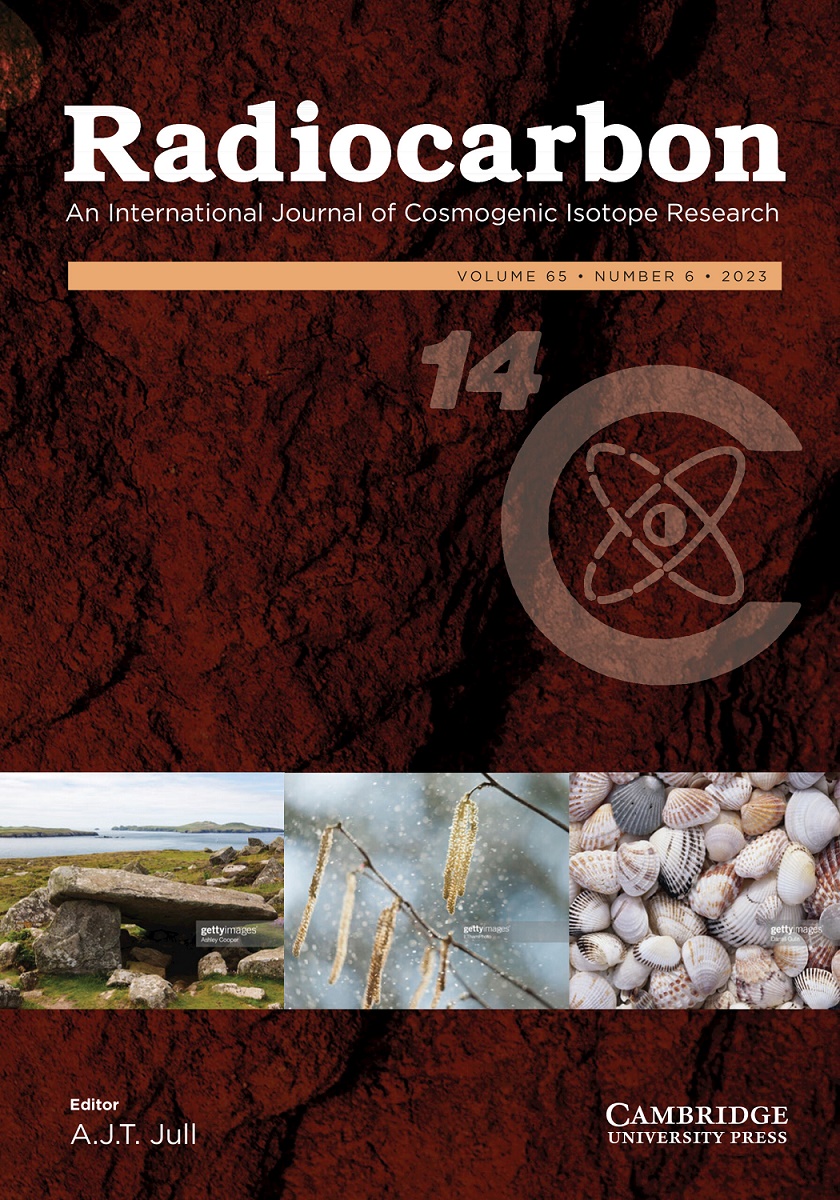IMPROVING IONPLUS MICADAS PERFORMANCE WITH RECESSED GRAPHITE
IF 1.3
3区 地球科学
Q2 GEOCHEMISTRY & GEOPHYSICS
引用次数: 0
Abstract
Cathodes with recessed sample surfaces have several benefits in cesium sputter ion sources, including higher output, more efficient use of sample material, and improved focusing of the extracted ion beam. However, the Ionplus MICADAS uses cathodes with a graphite surface that is essentially flush with the sample holder. To evaluate the performance of recessed graphite with the MICADAS and determine the optimal surface depth, we tested four different depths, including the standard (flush) pressing method, 0.5 mm, 1.0 mm, and 1.5 mm. We found that recessed depths of 1.0 and 1.5 mm resulted in 20% higher ion beam current compared to the standard method under the same source conditions. The results are consistent with the beam produced from the recessed targets being more narrowly focused with a lower emittance, resulting in better transmission through the accelerator. Small graphite samples (200 µg C) with recessed surfaces produced higher currents for longer, leading to a 2–3× increase in sample ionization efficiency. Additionally, there was some evidence that isotopic ratio measurements of recessed samples were more stable over time. Overall, samples recessed to 1 mm depth offered numerous advantages over the standard pressing method and we have subsequently started pressing all MICADAS graphite using this approach.利用嵌入式石墨提高 ionplus micadas 的性能
在铯溅射离子源中,具有凹陷样品表面的阴极有多种优点,包括更高的输出功率、更有效地利用样品材料以及改进提取离子束的聚焦。然而,Ionplus MICADAS 使用的阴极的石墨表面基本上与样品架齐平。为了评估嵌入式石墨在 MICADAS 中的性能并确定最佳表面深度,我们测试了四种不同的深度,包括标准(齐平)压制法、0.5 毫米、1.0 毫米和 1.5 毫米。我们发现,在相同的源条件下,与标准方法相比,1.0 毫米和 1.5 毫米的凹入深度可使离子束电流增加 20%。这一结果与凹靶产生的离子束聚焦范围更窄、发射率更低,从而通过加速器的传输效果更好相一致。表面凹陷的小型石墨样品(200 微克 C)能在更长的时间内产生更大的电流,从而使样品电离效率提高 2-3 倍。此外,有证据表明,凹陷样品的同位素比测量结果随着时间的推移更加稳定。总之,与标准压制方法相比,凹入 1 毫米深度的样品具有许多优势,因此我们随后开始采用这种方法压制所有 MICADAS 石墨。
本文章由计算机程序翻译,如有差异,请以英文原文为准。
求助全文
约1分钟内获得全文
求助全文
来源期刊

Radiocarbon
地学-地球化学与地球物理
CiteScore
16.20
自引率
6.00%
发文量
85
审稿时长
6-12 weeks
期刊介绍:
Radiocarbon serves as the leading international journal for technical and interpretive articles, date lists, and advancements in 14C and other radioisotopes relevant to archaeological, geophysical, oceanographic, and related dating methods. Established in 1959, it has published numerous seminal works and hosts the triennial International Radiocarbon Conference proceedings. The journal also features occasional special issues. Submissions encompass regular articles such as research reports, technical descriptions, and date lists, along with comments, letters to the editor, book reviews, and laboratory lists.
 求助内容:
求助内容: 应助结果提醒方式:
应助结果提醒方式:


